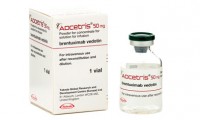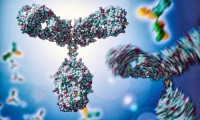-
Lynparza tablets (ovarian cancer) given go-ahead by European regulators
- Source: drugdu
- 1,031
- May 10, 2018
-
CAR-T therapy could be available to NHS patients this year
- Source: pharmatimes
- 5,358
- April 28, 2018
-
Portable Cancer-Detecting Device Being Developed By Korean Startup
- Source: International Business Times
- 2,148
- April 13, 2018
-
Another immunometabolism deal? Johns Hopkins spinout Dracen lands $36M investment from Deerfield
- Source: Endpts
- 1,062
- April 3, 2018
-
FDA expands approval of Adcetris for first-line treatment of Stage III or IV classical Hodgkin lymphoma in combination with chemotherapy
- Source: finance.yahoo
- 931
- March 22, 2018
-
ROCHE TO BUY FLATIRON HEALTH FOR $1.9 BN TO EXPAND CANCER CARE
- Source: Reuters
- 730
- March 15, 2018
-
Quentis Nets $48M For Cancer Drugs, Building Buzz For NY Bio Startups
- Source: Xconomy
- 864
- March 5, 2018
-
Researchers develop new technology platform for cancer immunotherapy
- Source: immunotherapies
- 719
- February 27, 2018
-
Gilead links with Sangamo in gene therapy alliance
- Source: drugdu
- 808
- February 26, 2018
your submission has already been received.
OK
Subscribe
Please enter a valid Email address!
Submit
The most relevant industry news & insight will be sent to you every two weeks.













